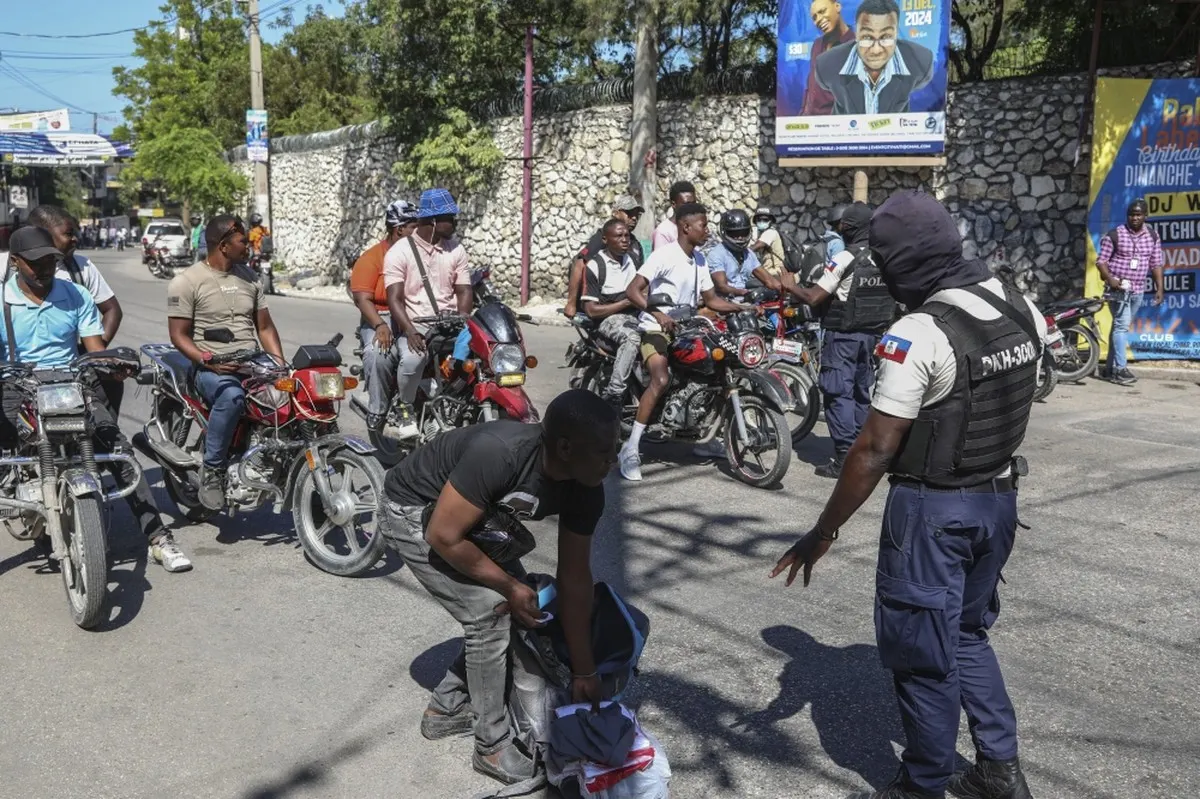21/11/2024
21/11/2024

UNITED NATIONS, Nov 21, (AP): Russia and China on Wednesday opposed a US-led campaign to transform the Kenya-led multinational force in Haiti helping police to tackle escalating gang violence into a UN peacekeeping mission. The two allies called a UN Security Council meeting as gangs have intensified attacks, shooting at four aircraft which has shut the airport in the capital Port-au-Prince, and a ttacking its upscale neighborhood Petionville on Tuesday.
The UN estimates the gangs control 85% of the capital and have spread into surrounding areas. The United States proposed a UN peacekeeping mission in early September as one way to secure regular financing for the UN-backed multinational force, which faces a serious funding crisis. The US tried to get the 15-member UN Security Council to sign off on a draft resolution last week to start the transformation.
But Russia and China refused to discuss the resolution and instead called for Wednesday’s council meeting where they made their opposition clear. China’s Deputy UN Ambassador Geng Shuang said the council extended the mandate of the multinational force only a month ago, and discussing its transformation to a peacekeeping operation now "will only interfere” and make it harder to tackle its funding shortfall and get all the police pledged to Haiti.
Peacekeepers should only be deployed when there is peace to keep, and there is no peace in Haiti, Geng stressed. "Deploying a peacekeeping operation at this time is nothing more than putting peacekeepers into the front line of the battles with gangs.” The multinational force was supposed to have 2,500 international police but the head of the UN’s political mission in Haiti, Maria Isabel Salvador, told the council late last month that only around 430 are deployed - some 400 from Kenya and the rest from the Bahamas, Belize and Jamaica.
She said the UN trust fund that finances the multinational force and relies on voluntary contributions, "remains critically under-resourced." By last week, the trust fund had received $85.3 million of the $96.8 million pledged. The U.S. agreed to contribute $300 million to the force, but that total is still far below the $600 million cost to deploy a 2,500-strong force for a year.


